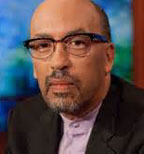By Bill Fletcher, Jr., NNPA Columnist
Since the moment that he announced his candidacy in 2007, through to this day, there have been two debates over how to understand President Barack Obama. There is the larger social debate, which includes the hysterical and racist assaults on the First Family. There is also a separate debate, one that only occasionally appears in the mainstream media, one that is rooted in Black America.
The first Black debate, during his run for the presidency, revolved largely around whether President Obama was truly Black, in large part as a result of his mixed blood. As his candidacy proved substantial, voices in Black America began to shift. There remained, however, many of us on the left end of the spectrum who had varying degrees of concern about what President Obama truly represented, and specifically, who he represented.
There was no consensus in these criticisms from the left, we should note. Some critics were most concerned a-bout whether he would truly represent Black America; others were concerned that he would be a continuation of the Bill Clinton administration. In either case, the voices of the critics were drowned out by the rising levels of excitement in connection with the campaign.
Upon President Obama’s election, Black America went through a new stage in its relationship to the President. There was exuberance and pride in connection with his election. There was also – and this was not limited to African Americans – a tendency by many to turn Obama into whatever we happened to hope that he would be or become. This almost magical tendency resulted in the eternal search for clues as to what Obama really meant by various statements and actions.
Very quickly, within Black America, there emerged a resistance, if not hostility to any criticisms being raised of the president. This was quite understandable in that the racist right-wing began its assaults on President Obama almost immediately and it was more than clear that rather than being in a “post-racial” environment, the election of President Barack Obama brought with it the emergence of just about every fear that right-wing Whites had about the danger of a ‘Black planet.’
Yet, this resistance to criticism of the president meant that Black America placed almost no pressure on the President Obama Administration. Fearing that any criticism of President Obama would lend support to the political right, there was largely silence. And when the silence was broken, as in the criticisms offered of the president by Cornel West and Tavis Smiley, the critics – regardless of the relative merit of the criticism(s) – were and are frequently attacked for breaking ranks.
While you may disagree with the rhetoric and/or tactics of West and Smiley, that must be separated from the fundamental content of the criticisms. West and Smiley were looking for President Obama to be a strong advocate for the poor; against racial injustice; and a less belligerent foreign policy. I agree with their sentiments.
The problem is that without the pressure of mass movements, President Obama was going to do little more than he has, in part because he tends in the direction of premature compromises with the political right. Getting Obama to do otherwise necessitates more than the criticism – frequently sharp and all too personal – meted out by advocates such as West and Smiley, but instead must involve masses of people communicating their discontent and demands through various forms of action, including electronic mobilizations and in-the-streets activity.
To the extent to which President Obama is targeted personally, e.g., questioning his blackness or commitment to Black people, we miss the larger point. President Obama is the President of the strongest capitalist power on this planet. His job is to make capitalism work and to ensure that the system functions. He is the head of an administration and is not an absolute monarchy, regardless of what the racist right suggests. As such, to get a different and progressive behavior, we, the people at the base, have to alter our behavior and demonstrate that the status quo is unacceptable. We will demonstrate that through public, constructive and hard criticisms of the administration, but more importantly we will demonstrate that when we exert power at the ballot box, in the workplace and in the communities.

